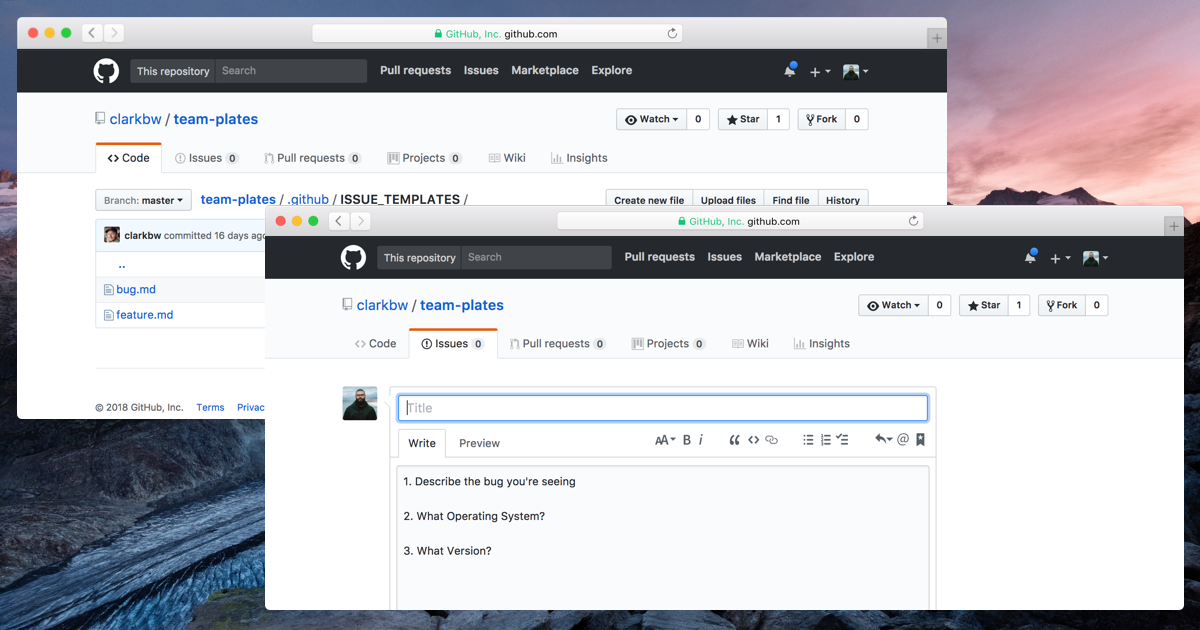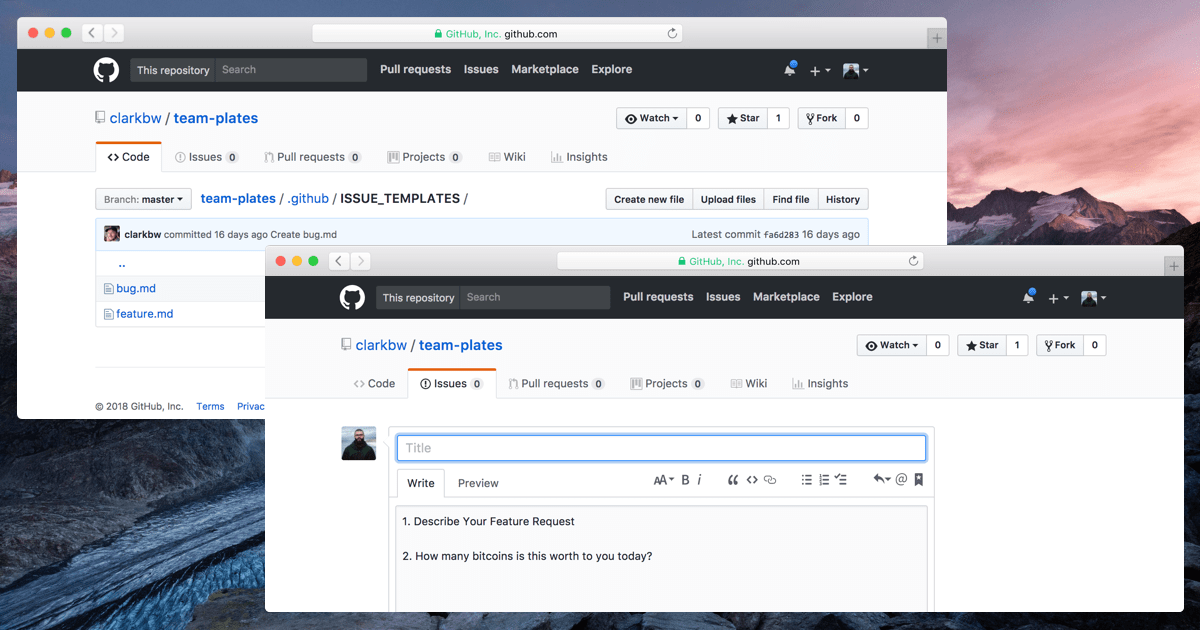Multiple issue and pull request templates
Issue and pull request templates help teams gather the right information from the beginning of a thread, but sometimes one template just isn’t enough. Now project maintainers can have and…
Issue and pull request templates help teams gather the right information from the beginning of a thread, but sometimes one template just isn’t enough. Now project maintainers can have and use multiple templates in their repositories.

To add multiple issue templates to a repository create an ISSUE_TEMPLATE/ directory in your project root. Within that ISSUE_TEMPLATE/ directory you can create as many issue templates as you need, for example ISSUE_TEMPLATE/bugs.md. To use those issue templates add ?template= and your template name to the new issue URL. Continuing the example, if you create the template bugs.md you add ?template=bugs.md to the new issue URL, so it becomes /issues/new?template=bugs.md.

Your default ISSUE_TEMPLATE.md files will continue to work as the default when a template isn’t specified in the new issue URL. Pull request templates follow the same pattern: add a directory called PULL_REQUEST_TEMPLATE to the root directory of your repository, and add the ?template= to your pull request URLs. And if you’re worried about extra clutter in the root directory of your project, all of these directories work within the .github folder as well
To read more or learn about additional options, check out the documentation.
Written by
Related posts

GitHub availability report: January 2026
In January, we experienced two incidents that resulted in degraded performance across GitHub services.

Pick your agent: Use Claude and Codex on Agent HQ
Claude by Anthropic and OpenAI Codex are now available in public preview on GitHub and VS Code with a Copilot Pro+ or Copilot Enterprise subscription. Here’s what you need to know and how to get started today.

What the fastest-growing tools reveal about how software is being built
What languages are growing fastest, and why? What about the projects that people are interested in the most? Where are new developers cutting their teeth? Let’s take a look at Octoverse data to find out.